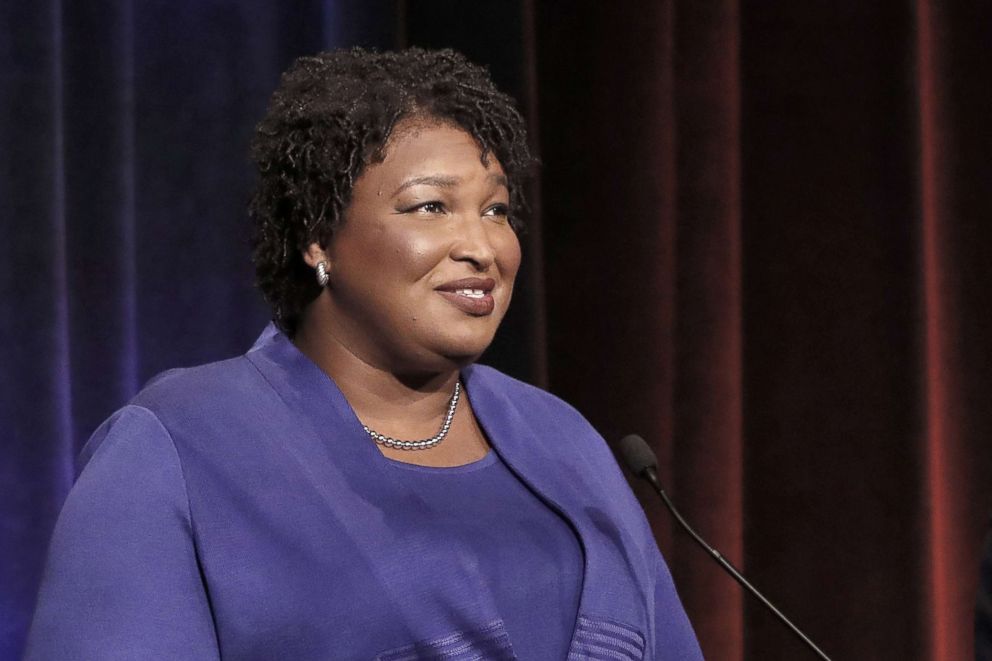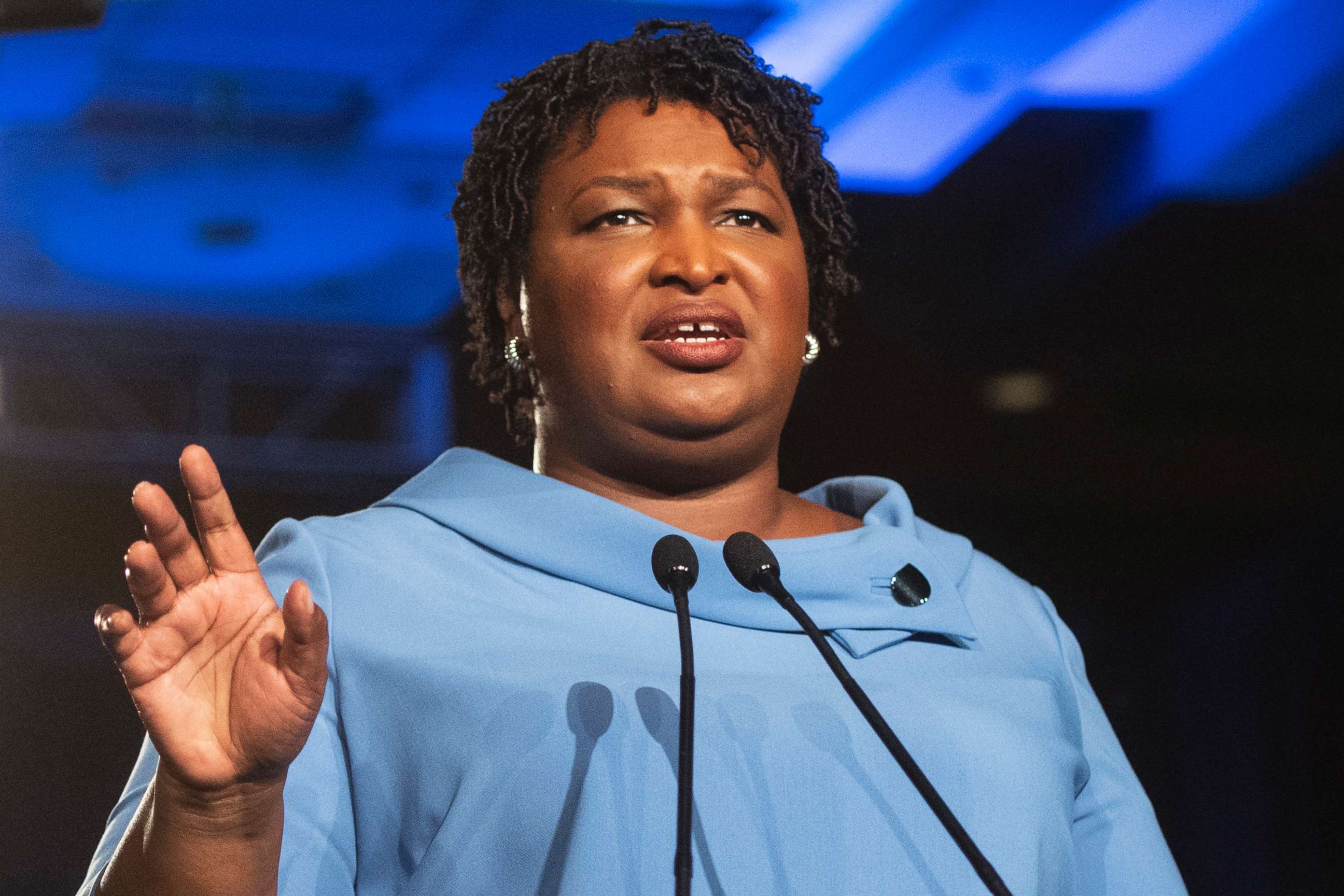Who is Stacey Abrams, the Democrat who will respond to Trump's State of the Union?
Abrams got national attention while running for Georgia governor in 2018.
Last November, Stacey Abrams, a Democrat who ran for governor of Georgia, came close to becoming the first black woman to lead a state in U.S. history. And when Democrats announced she would take on the challenging task of rebutting President Donald Trump's State of the Union address on Feb. 5., she once again came into the national spotlight.
Who is Stacey Abrams?
Abrams grew up in Mississippi, the daughter of a college librarian and a shipyard worker. They eventually decided to become United Methodist ministers, picking up and moving the family of eight to Georgia. Abrams's family wasn't well off but she went on to build an impressive resume, including degrees from Spellman University and Yale Law School.
"My mom likes to call it the genteel poor. We had no money but we watched PBS and we read books," said Abrams in an interview with ABC News in January 2018. "They really believed that where we started out was not going to dictate where we ended up."

Abrams rose through the political ranks, eventually becoming minority leader in the Georgia House of Representatives. She was the first woman ever to lead a party in the Georgia statehouse -- but also the first woman to lead a party in the history of the state.
"You don’t have role models who show you how to do it,” Abrams said in the same 2018 interview. “And there’s an internal dynamic that I’ve seen among women that doesn’t seem to exist among men, where we believe we have to be experts before we stand for office. Men wake up, some of them, and look in the mirror and think, ‘I’m attractive, I should be in charge of something.'"
Along the way, she launched an effort called the New Georgia Project, with a goal of registering tens of thousands of new voters that Abrams said could make all the difference for Democrats in a state with six million voters -- fair voter registration has been a theme of her career and was a central tenet in the battle for the Georgia governor's race in 2018.
How the inroads made in Georgia governor's race set her apart
Abrams stepped down from her role in the statehouse to run for governor in the 2018 midterm cycle. Though she lost, she ran a race so close it was in limbo for days after the election as votes continued to come in. Her opponent, now Gov. Brian Kemp, R-Georgia, won with 50.22 percent of the vote.

Abrams, who has said she will run for office again but not specified for what role, will be the first in recent years to give a State of the Union rebuttal speech without holding elected office, with the exception of former Gov. Steve Beshear, a Kentucky Democrat, who did so in 2017.
That Abrams ran such a tight race was more impressive given that Republicans have held the Georgia governor's mansion since 2003, a woman has never been elected governor there and never before in U.S. history has an African American woman been elected governor of any state.
Democratic leaders credited her with leaving a playbook for the party in the Trump era. Abrams saw endorsements from top Democrats like former presidential candidate Hillary Clinton, Sen. Kamala Harris, D-California and Sen. Bernie Sanders, I-Vermont. Plus, Oprah Winfrey showed up to help her door knock.
"As a daughter of the South, I’m very proud of Stacey Abrams, the kind of campaign that she’s run," said former interim chair of the Democratic National Committee Donna Brazile on "This Week" in November before the election. "Stacey Abrams understood that in order to win, you had to bring a new energy in the party, and she’s done that."
A runoff election was narrowly avoided in the days after the election but led to a broader conversation on voting rights. Kemp, who served as secretary of state for Georgia until two days after Election Day, was accused by Abrams and others of purging voter records and suppressing votes.
"To watch an elected official who claims to represent the people in the state baldly pin his hopes for election on suppression of the people's democratic right to vote has been truly appalling," said Abrams in her eventual concession speech on Nov. 16.
Abrams subsequently launched Fair Fight Georgia, a legal organization to "pursue accountability in Georgia’s elections and integrity in the process of maintaining our voting rolls," according to a release from her gubernatorial campaign.
Senate Minority Leader Chuck Schumer, who announced Abrams as candidate for the rebuttal on Tuesday, said "she has led the charge for voting rights which is at the root of just about everything else."
Schumer also called Abrams a "great spokesperson" and an "incredible leader" who knows what "working people go through."




